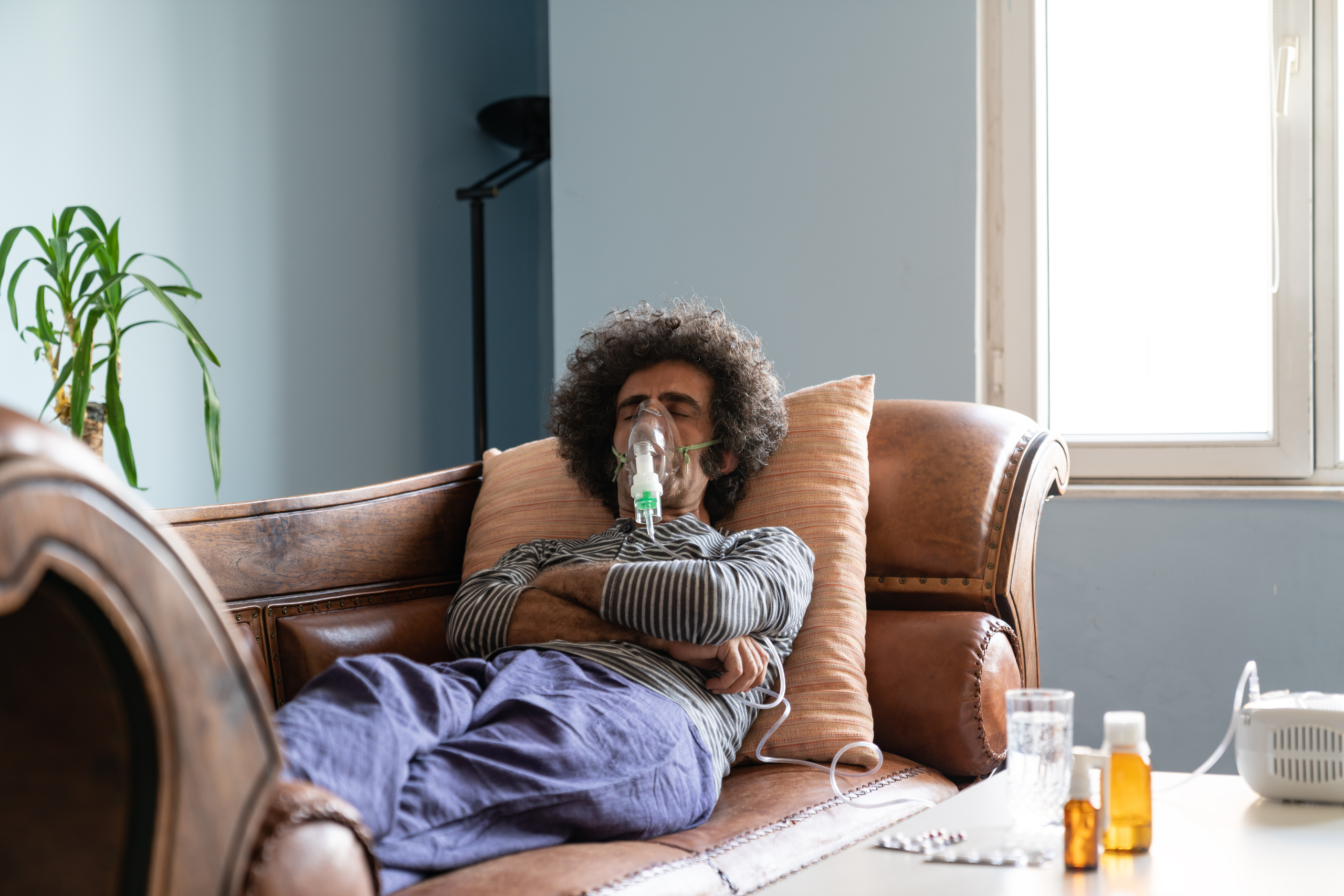Medically Reviewed by Kelli Randell, MD
Whether you are suffering from a chronic or non-chronic condition, a nebulizer could be just the device you need to feel better. A nebulizer machine is similar to a metered-dose inhaler (MDI), in that it distributes breathable medications into your body.
However, unlike an inhaler, which requires you to squeeze the device and inhale deeply at the right moment, a nebulizer automatically turns your medication into a breathable mist and delivers it to you via a mouthpiece or face mask, eliminating the need for precision.
Learn more below about how nebulizers can be used as a simpler solution to help treat a variety of different conditions.
Asthma Nebulizer
Nebulizers deliver life-saving medications when it is hard to breathe in. Pediatric nebulizers are also a good choice for children who may not be able to work an inhaler on their own. Asthma medications that can be used with a nebulizer to reduce symptoms during an asthma attack include inhaled corticosteroids like fluticasone, ciclesonide, budesonide, mometasone, and beclomethasone. Using a nebulizer for asthma daily can also prevent asthma attacks from occurring.
Nebulizer for COPD
Using a nebulizer to treat your COPD (Chronic Obstructive Pulmonary Disease) can help you breathe better, live life more fully, and have fewer flare-ups. COPD treatment can involve taking daily nebulizer medications. These COPD medications can include corticosteroids, anticholinergics, and beta-agonists, which can be distributed at once.
Nebulizer For Cystic Fibrosis
Managing cystic fibrosis requires a number of inhaled medications to increase the function of the lungs, which is why using a nebulizer is so convenient. Most treatments begin with bronchodilators, followed by hypertonic saline, dornase alfa (Pulmozyme), antibiotics, and steroids.
Of course, because people with cystic fibrosis are highly susceptible to germs, you will need to completely disinfect the nebulizer after every use by boiling it, microwaving it, or soaking it in alcohol or peroxide.
Bronchiectasis Nebulizer
When you use a nebulizer for bronchiectasis treatment, you can improve airway clearance and treat any emerging infections. Generally, you will take inhaled steroids and a long-acting bronchodilator twice a day. These medications are bundled together to decrease the time it takes for treatment.
Nebulizer For Respiratory Infection

Anyone can get a respiratory infection, and using a nebulizer can help. Additionally, nebulizer treatments can provide faster relief to at-risk populations, such as children or the elderly.
Nebulizer For Pneumonia Symptoms
When you use a nebulizer for pneumonia, it can help loosen the mucus in your lungs so you can breathe better. In conjuction with pneumonia treatment, albuterol is used to improve breathing.
Note: A nebulizer will not treat pneumonia, it will just help you temporarily breathe better. Symptoms will keep returning until the infection clears.
Nebulizer For Bronchitis
Bronchitis is another nonchronic condition that can be treated with a nebulizer. Albuterol works by relaxing the muscles in your airway to allow the breathing passage to open.
Choose a Nebulizer for Your Health Condition Today
If you have a respiratory condition, contact a physician. If you are prescribed a nebulizer, Aeroflow can help supply it through your insurance.
References
- https://www.rchsd.org/health-articles/whats-the-difference-between-a-nebulizer-and-an-inhaler/
- https://www.medicinenet.com/asthma_medications/article.htm#what_are_the_specific_controller_medications_for_asthma
- https://www.lung.org/lung-health-and-diseases/lung-disease-lookup/copd/diagnosing-and-treating/managing-your-copd-medications.html
- https://med.stanford.edu/cfcenter/education/english/Meds-Nebs.html
- https://www.nationaljewish.org/conditions/bronchiectasis/bronchiectasis-overview/treatment
- https://www.medicalnewstoday.com/articles/324947.php
- https://www.emedicinehealth.com/acute_bronchitis/article_em.htm#what_are_the_signs_and_symptoms_of_acute_bronchitis




